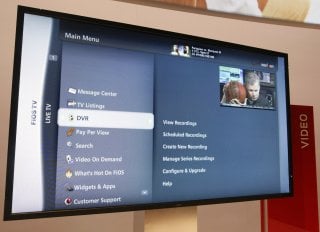Cable TV CEO Hints That Cable TV Is, In Fact, Dying
The CEO of cable company Altice USA said in a recent interview that he envisions a day when cable TV, as we know it, no longer exists.
The CEO of cable company Altice USA said in a recent interview that he envisions a day when cable TV, as we know it, no longer exists.
“Because the economics get worse and worse every year. As we’ve been speaking, since I’ve known you over the last five years, the story is still the same,” Dexter Goei, the CEO of Altice USA said in a CNBC interview this week. “Price levels for content continue to rise. Eyeballs for content over big bundles continue to fall.”
Now, another cable CEO is addressing the future of his industry.
“Live TV will continue to be sold in a linear package for a significant period of time,” Tom Rutledge, the chief executive of Charter Communications, said this week at Morgan Stanley’s annual Technology, Media & Telecom conference, as cited by Deadline.
“There are a lot of customers and users who enjoy that experience,” he added. "But it is being priced out of the market in many ways and the new streaming and on-demand products really haven’t been successful from a linear perspective yet. Obviously they’re gaining some traction in the marketplace.”
Charter owns Spectrum, and is the nation’s second-largest cable provider. Rutledge noted at the conference that his company managed to add pay-TV subscribers in 2020. The company gained 102,000 pay TV subscribers in the second quarter of 2020 and added another 67,000 in the third quarter, although it dropped 66,000 in the fourth quarter.
The company, though, did add a significant amount of broadband customers, adding 2.1 million residential Internet customers in the year 2020. The company also said in its fourth quarter earnings that a full 85 percent of its home Internet customers subscribed to plans that gave them speeds of more than 100 Mbps.
“I think we can manage our video relationships with customers going forward and we can sell streaming packages and be a storefront and an aggregator,” Rutledge said at the conference.
“The industry will segment into much narrower niches. People still spend a lot of time on the big screen and there’s an opportunity there for us to be the best provider of those products because of our customer relationships, and to have a higher-quality product and a more valuable product.”
Charter acquired Time Warner Cable and Bright House Networks in 2016, as part of a wave of consolidation in the American cable TV industry in the 2010s. As of the end of the third quarter, Charter was the second-largest cable company and second-largest pay-TV provider in the U.S., with 16.2 million subscribers, behind only Comcast, which had just over 20 million. Charter is way ahead of the third-place company, Cox, which had 3.7 million.
Stephen Silver, a technology writer for The National Interest, is a journalist, essayist and film critic, who is also a contributor to The Philadelphia Inquirer, Philly Voice, Philadelphia Weekly, the Jewish Telegraphic Agency, Living Life Fearless, Backstage magazine, Broad Street Review and Splice Today. The co-founder of the Philadelphia Film Critics Circle, Stephen lives in suburban Philadelphia with his wife and two sons. Follow him on Twitter at @StephenSilver.


